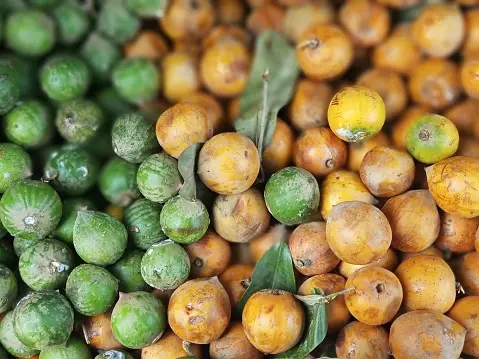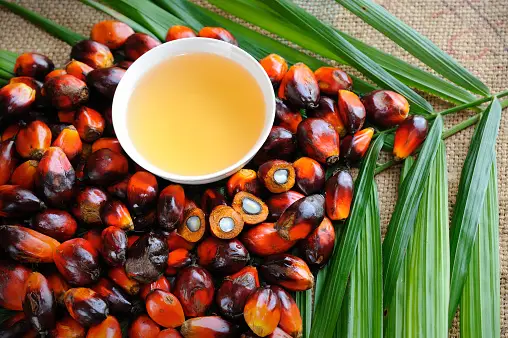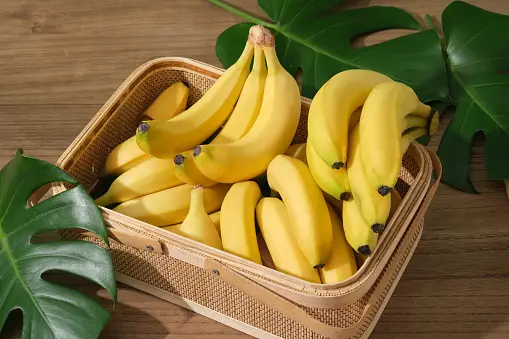There's a common belief surrounding plantain and its connection to a condition called Oka Ori. In this article, we'll unravel the truth behind this myth and explore the benefits of incorporating plantain into your pregnancy diet.
What is Oka Ori?
Oka Ori, a sunken fontanelle, is the soft spot on a baby's head. This area, situated between the skull bones, may appear somewhat depressed. It is located at the front or back of the head, and a membrane and skin support it since it lacks solid bone structure.
Not all fontanelles on newborns are necessarily sunken. The most easily noticeable ones are those that appear to be depressed. Understanding the causes, prevention, and management of oka ori is crucial for your baby's well-being.
Causes of oka ori
There are several potential causes of oka ori; some include:
- Dehydration: Dehydration arises when the body loses more fluid than it takes in. The primary source of this water loss is often excessive perspiration. This situation is a medical emergency, necessitating urgent attention.
- Kwashiorkor: Kwashiorkor is a severe type of malnutrition resulting from insufficient protein intake.
- Faltering growth: Failure to thrive as a child refers to a situation where they do not meet established growth standards.
- Dilated colon due to toxicity: Toxic megacolon is a rare and life-threatening enlargement of the large intestine, typically a complication of inflammatory bowel disease (IBD).
- Water regulation disorder: Diabetes insipidus (DI) is not a variant of diabetes. Instead, it's a rare condition wherein the kidneys struggle to retain water effectively.
How to prevent oka ori in babies
Preventing oka ori involves ensuring a healthy overall development for your baby. These include:
- Providing a balanced and nutritious diet.
- Ensuring regular check-ups with your healthcare provider.
- Following recommended infant care practices.
How to treat oka ori in babies
In most cases, oka ori typically doesn't necessitate intervention as it's a natural phase of a baby's growth. However, suppose a sunken fontanelle is confirmed to be due to dehydration. In that case, the doctor may administer fluids orally if the baby is conscious and not vomiting or through an intravenous (IV) line in their arm.
This will help restore the body's fluid levels to a healthy state. If malnutrition is the underlying cause, your baby may receive essential nutrients and fluids orally or through an IV. Seek guidance from a healthcare professional before attempting any treatment without proper prescription.
Health benefits of plantain in pregnancy
Plantain is a nutritional powerhouse, offering many benefits for you and your growing baby. Rich in essential nutrients like fiber, vitamins, and minerals, it supports healthy digestion, boosts immunity, and contributes to overall well-being.
Myth or Fact: Eating plantain in pregnancy causes oka ori in babies
This belief is a myth. Oka ori is a natural developmental stage, and the consumption of plantain or any specific food during pregnancy isn’t an influence.
Embracing plantain as a valuable addition to your pregnancy diet is a thoughtful choice that nurtures you and provides essential nourishment for your growing baby. It's crucial to remember that oka ori, the natural soft spot on a baby's head, is an integral part of infant development and is not influenced by any particular food consumed during pregnancy.
Relish the benefits of plantain with confidence, knowing that you are offering your little one a foundation of health and vitality that will serve them well into the future.
Frequently Asked Questions (FAQs)
- What causes oka ori in babies?
Oka ori, or the soft spot on a baby's head, is a natural part of infant development and is not linked to any specific food consumed during pregnancy.
- How can I treat oka ori in my baby?
In most cases, oka ori requires no treatment as it is a normal developmental stage. However, consult with a healthcare professional for proper guidance if there are concerns.
- Is it safe to eat plantain in pregnancy?
Incorporating plantain into your pregnancy diet is safe and provides essential nutrients beneficial for both you and your baby's health.
Join over 200,000 Nigerian preggos in Nigeria's largest online antenatal class, PreggClass. Not all your antenatal concerns and questions will be answered in the hospital. With only N10,000, you gain 24/7 access to medical professionals, practical classes, live sessions, labour, delivery and motherhood classes. For more information, contact us on WhatsApp.










Comments